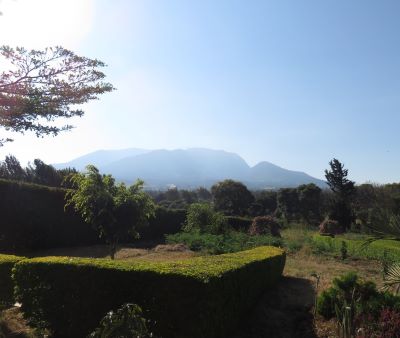From Binti to Bibi
by Sr. Maria Borda, MMM Malta/Tanzania 13.01.2023
 My first taste of Africa was when I was blessed to spend two months in Dareda Hospital, Tanzania, in 1979, as a medical student. The experience strengthened my resolve to study hard so that I could get out ‘on the field’ as soon as possible! I returned to Tanzania in 1984, still a newly qualified doctor. At that time, I was known as “Binti” – Swahili for “young lady”. Things change over time. I am now “Bibi”, a granny.
My first taste of Africa was when I was blessed to spend two months in Dareda Hospital, Tanzania, in 1979, as a medical student. The experience strengthened my resolve to study hard so that I could get out ‘on the field’ as soon as possible! I returned to Tanzania in 1984, still a newly qualified doctor. At that time, I was known as “Binti” – Swahili for “young lady”. Things change over time. I am now “Bibi”, a granny.
As a young doctor, I had my apprehensions, following the basic tenet of Medicine, ‘Prima Non Nocere’…. Firstly, DO NO HARM. Gradually I moved out of that timid space to realise that God could use every grain of talent and knowledge that I could offer Him, and He would increase and multiply it as with the loaves and fishes, for the good of my patients.
Of course, I was initiated into health care in the Tropics by MMM Sister-Doctors, nurse-midwives, Pharmacists, Lab technicians, Physiotherapists and others who preceded me on the field. But I also returned to my books. The Oxford Handbooks and Hamilton Bailey’s ‘Surgery’ became my Bibles. Nowadays, young doctors, even in the rural hospitals, go straight to Google!
I remember one incident where the books did not help. One Sunday morning, a procession of men, young and old, started coming into the Hospital. Each sported a wound caused by a stray leopard. It seems that it had aged, lost its teeth, and got separated from its pack. What to do?
I phoned the police. Who else would I phone? They thankfully got in touch with the Game Wardens who appeared after an interval. Sadly, the beautiful animal had to be shot in self-defence by an armed watchman.
Over the years I have seen many changes in health care and watched how the improved communications and general development have brought great improvements to our care of patients. One example I could give is the use of mobile phones. How many agonising minutes had I had to spend before with women who needed an urgent Caesarean Section but would not agree, even with severe labour pains, without her husband’s consent. Now, the mother usually carried the husband’s phone number on a little piece of paper, screwed into a corner of her wrapper. I would phone him and explain the serious risks. Usually there was no problem, I would get the go-ahead, and hopefully present the mother with a bouncing baby
Rural electricity supply and blood bank fridges have been another very positive development. We can now store donated blood safely at least for some days. The HIV epidemic revolutionised blood donation. It expedited the development of testing for HIV and other diseases and taught us how to minimise the need for blood transfusions.
Information technology also revolutionised our lives, mostly to the better but with a few headaches along the way! It helps in storing and accessing easily important documents. I can get email replies to my medical queries within hours instead of weeks. The nearest IT experts are a few hours’ drive away, but now many younger members of staff can solve my IT challenges. There was a time when all my emails came out on a purple background, for weeks, until a visiting medical student found a solution to get rid of that sobering colour.
Telemedicine is another great blessing. The network broadened from my personal contacts to the iPath consultations which also gave me speedy responses. One example of how this helped I will share. One family we looked after sadly had two successive neonatal losses. Online, an embryologist consulted an epidemiologist for me, and helped me to counsel the parents. They tried again, and this time they had a live and healthy female baby.
The same former colleague in Malta, now Professor of Embryology there, enlisted me in a ZOOM meeting on rare Gynae Cancers. These facilities keep me from getting too rusty.
Now I am known as “Bibi”. I am at the stage of being shown ‘my’ children’s children, because many that God enabled me to help with their fertility now bring their daughter or daughter-in-law to the clinic and present her as the baby that I had helped to deliver a generation ago. So, even though I never went through physical labour, my labour by proxy has yielded lasting fruits.
I have now scaled down my workload, from a busy hospital where I might be still at the Obs/Gynae clinic at 9 pm, then called to theatre for a complicated delivery at midnight; to a dispensary where there are no deliveries, no admissions, no surgery, no night call. I am grateful that I can still follow mothers through difficult pregnancies, and diagnose, and refer early, women with diseases such as cancer of the cervix.
Having moved to a less high-powered environment, I am grateful that I have time to stop and stare at the blossoming trees, the birds and butterflies, the beautiful mountain which greets me every morning. This scaling down is acceptable here because I am a “Bibi”.
SEE ALL BLOG POSTS
